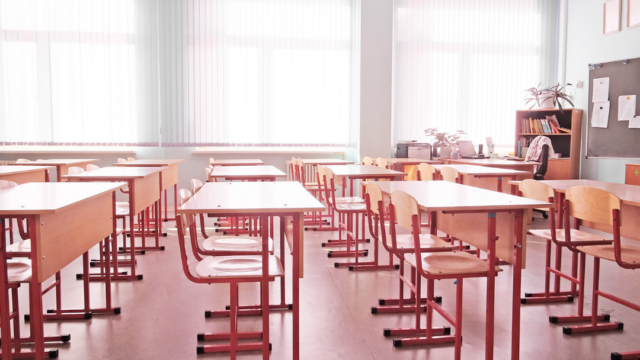Frontline Blog
To Turn the Corner on COVID-19, We Need to Agree on Priorities
October 2020

By Chrissie Juliano, Executive Director
The coronavirus pandemic has altered American life in countless ways. During the week, schools sit empty, as children and their teachers interact for lessons through video chat. And on Saturdays and Sundays, places of worship welcome only a fraction of their usual practitioners, as people stay home to avoid crowds.
The stability of our workforce has also faltered. According to the Pew Research Center, one in four adults have had trouble paying their bills since the coronavirus outbreak started, a third have dipped into savings or retirement accounts to make ends meet, and about one in six have borrowed money from friends or family or gotten food from a food bank.
We’ve cancelled weddings, birthday parties, concerts, and sporting events to protect our friends and families. In one way or another, each and every American has made sacrifices in order to control the spread of the coronavirus. And, sadly, many more sacrifices must be made.
About nine months after the first known U.S. case of coronavirus in the United States, the pandemic rages on, with more than 1,000 deaths per day due to COVID-19 in mid-October. Worse still, the virus has disproportionately impacted people of color, with Black and Latinx Americans nearly three times more likely to die from COVID-19 than white Americans.
We all want to return to some semblance of normalcy and socialize with family and friends, or watch our favorite team in person (or even in a bar!). But we need to remember our priorities.
Our children are not fully back in school and our holiday traditions are in flux as we consider the risks of gathering with grandparents and others who are more vulnerable. And yet many people are arguing that bars should open and debating about whether to allow fans in stadiums for college and professional sports. When we look at the big picture, are in-person sports and happy hours really our top priority?
Let’s take a look at the math surrounding just one decision – whether or not fans should be allowed to attend a 49ers game in the County of Santa Clara, California. Levi’s Stadium holds 68,500 fans at full capacity. At 20 percent capacity, as is allowed by state reopening guidance, 13,700 fans could attend the game in person. California’s guidelines say that fans can come from as far as 120 miles, including from communities where the COVID-19 positivity rate is approaching 10 percent. This means that as many as 1,000 fans at the game could be infected with coronavirus.
It goes without saying that behavior at NFL games – or really any sporting event — is not conducive to containing the spread. People get excited and cheer for their team. When the team performs well, it is natural to want to celebrate with other fans. While the stadium is outdoors, bathrooms are indoors and in spaces with limited ventilation. And when alcohol is added to the mix, important public health practices like social distancing become harder to enforce. Taking all these factors into account, an NFL game could quickly become a super spreader event.
Public health officials are charged with protecting the health of their jurisdictions, and they do not take this mission lightly. The decisions they have to make are incredibly difficult, and many are not popular. To inform their decisions, they look at science and data, and there is a consensus that mass gatherings are particularly risky.
Public health measures – social distancing, masking up, washing hands, and staying home when we can – aren’t intended to stop people from living or stop the economy from prospering. Instead, it’s just the opposite. Public health measures save lives and will help our businesses and the economy recover and thrive.
Containing the spread of coronavirus should be everyone’s priority, so children can return to their school buildings, religious communities can return to in-person services, workers can return to their office, and all of us can once again socialize with friends and family. Each and every action we take should drive our communities toward that goal.